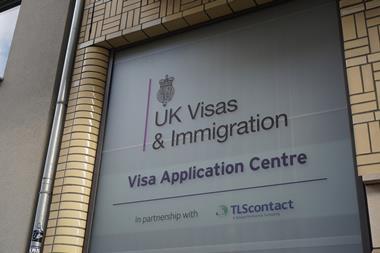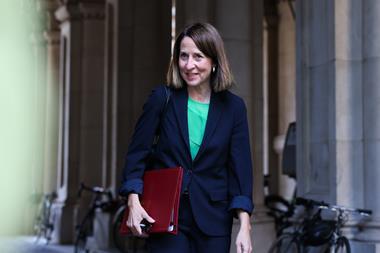‘An act of national self-harm.’ That’s how the House of Lords science and technology committee describes the UK’s approach to attracting global Stem talent. The government insists it wants to attract the best researchers into the country, yet its immigration policies are making this increasingly difficult, thanks to a complex and expensive system of visas and other high upfront costs.

Announced in June, the government’s industrial strategy includes a range of initiatives to attract international talent, such as a new global talent taskforce, which will report to the prime minister and identify ways to make the UK a more attractive destination. A new £54 million global talent fund aims to attract 10 world-class researchers and their teams to the UK over the next five years, and new Turing AI global fellowships targeting overseas researchers will provide £25 million for AI research at UK institutions. The government will also exempt certain occupations, such as engineering technicians and data analysts, from planned increases to the pay threshold for the skilled worker visa.
The immigration white paper, published in May, included plans to simplify the global talent visa, a common route researchers use to enter the UK, and make it more accessible to ‘promising’ talent, rather than just well-established names. There were also plans to double the number of universities qualifying for the high potential individual visa.
The cost of immigration barriers to UK chemistry
However, current visa and immigration policies still pose significant barriers for the R&D sector, says Edmund Derby, policy officer at the Campaign for Science and Engineering (CaSE). ‘A large driver of this challenging picture is the difficulty of advocating for skilled immigration in the context of the broader national debate around immigration, which is largely focused on reducing net migration.’ Yet surveys show that a majority of the public support a system that allows researchers to come to the UK. What’s more, global talent visas account for around 4000 people a year, less than 1% of the overall immigration figures in 2024. All visas granted for science, research and engineering roles fell by a third in the second half of 2024 from the same period a year earlier, Derby says.
Our visa system remains one of the most expensive in the world
Alison Noble, the Royal Society
‘The UK’s signals on immigration are, at best, mixed,’ Alison Noble, foreign secretary of the Royal Society, says. ‘The white paper talked about making it simpler and easier for research talent to come to the UK. However, our visa system remains one of the most expensive in the world. Our research has shown how the upfront costs of UK visas are 17 times higher than average across comparable science nations and a family of four would face costs of more than £20,000 to come to the UK. Increases like the 32% uplift to the immigration skills charge [fees imposed on UK employers employing workers on certain visas] will only make it harder to attract and retain talent.’
The global talent market is highly competitive, she adds. ‘With the global uncertainty caused by US cuts to federal science funding showing no signs of resolving, the UK needs a visa system that attracts a wide range of skilled individuals and an unambiguous message that the UK is open to researchers looking to pursue exciting ideas and build their careers.’
Chemistry’s perspective
‘Government policies around immigration are not helping universities,’ says Matt Jones, head of the chemistry department at the University of Bath. ‘The landscape is significantly more competitive in attracting talent to the UK. PhD recruitment, particularly, has been challenging in recent years. Attracting the talent we need as chemists is difficult. There are rising upfront costs associated with visa applications, healthcare [such as the immigration health surcharge to access NHS services] etc. This is exacerbated by international fees for some EU PhD students. At Bath, we are fortunate that we have seen an increase in institutional support to help attract top-PhD students from abroad.’
Creating an immigration environment that is only attractive to applicants who are single, family-less and often male is extremely damaging
Craig Butts, University of Bristol
Recruiting the very best people is sometimes at odds with the government’s immigration agenda, Derek Wann, head of the department of chemistry at the University of York, says. While initiatives like global talent visas are useful for attracting top researchers, he has also noticed that high visa fees and strict rules around dependants are deterring some applicants. ‘This impacts recruitment across all levels, from PhD candidates and postdoc applicants to established senior scientists. The financial burden that is placed on new recruits, coupled with other bureaucratic hurdles that are put in their way, leads to a perception that the UK is less welcoming. We see that, particularly those with families are often choosing other countries with more straightforward and affordable immigration pathways.’
Craig Butts, head of the chemistry department at the University of Bristol, says that while he is still able to recruit excellent people, he has also lost excellent people in the past year. The inflexibility of the visa system when it comes to bringing families to the UK has meant that some applicants have withdrawn after being offered jobs. ‘Funding for most postdoctoral researchers does not cover visa/NHS costs for their families, hence the risk of putting themselves in debt is even higher (and multiplied if they have children). When we are trying to create a culture where work–life balance is celebrated and encouraged, creating an immigration environment that is only attractive to applicants who are single, family-less and often male is extremely damaging.’
Leading international talent sees the UK as a ‘high-cost, marginal benefit’ option, thanks to government policies over the past decade, Butts says. ‘As an immigrant myself, I can attest to [feeling] “one of them”, not “one of us”, whenever the government is concerned – despite working, raising a family and contributing to the UK’s leading research environment. I’m not sure I’d recommend to the next generation of my New Zealand family that they should come here and do the same at the moment, no matter what amazing contributions they might bring.’
Ideally, Wann would like to see the government implement a ‘dedicated, streamlined and significantly more affordable’ visa route for researchers, including more flexible provisions for dependants and exemptions from immigration caps. ‘We also need to advocate for the economic and innovation benefits that international talent brings.’
Jones also argues that the academic community and scientific membership bodies need to highlight the positives that international researchers bring to universities and local communities. ‘Universities in the UK have a rich history of internationalisation, inclusion and culture. The diverse staff and student bodies add so much at a local level in many cities around the UK. The positives for local communities are not always made in the mainstream media.’












No comments yet